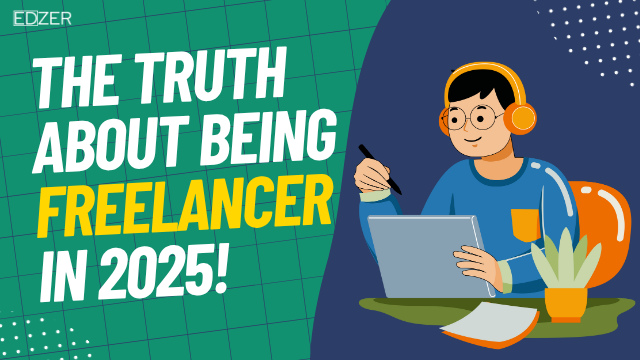Let’s be honest. Freelancing in 2025 isn’t just a trend anymore. It’s a legitimate career path that more people are choosing every day. Whether it’s for the flexibility, the chance to work on things you actually care about, or just to get out of the daily office grind, freelancing offers a whole new way to work.
But making the leap from a traditional job into freelancing isn’t just about quitting. It’s about building the right skill set, thinking like a business owner, and preparing for a very different kind of workday.
Whether you’re just starting out or already have years of experience, here’s a breakdown of the essential skills you’ll need to make freelancing not just possible but truly rewarding.
Digital Marketing: It’s More Than Just Posting on Social Media
If you’re just starting out
Start with content creation, learning how social media algorithms work, and understanding the basics of SEO. Try running a simple ad campaign for a friend’s small business or managing an Instagram page for a local brand. These real-world experiments teach you fast.
If you already work in marketing
It’s time to go deeper. Learn how to run performance-driven campaigns, set up email automation, or master Google Analytics. Companies are looking for freelancers who can not only create content but also measure impact and optimize results.
One thing to keep in mind
The more clearly you can show how your work helps a business grow, the more valuable you become.
Tech and Development: Coding Opens Doors
If you’re just getting into tech
Begin with simple website projects. Learn HTML, CSS, and JavaScript, or try building custom sites using WordPress. A lot of small businesses need developers who can help them look professional online without breaking the bank.
If you’re already working in tech
Now’s the time to explore full-stack development, build APIs, or dive into AI-enabled tools. Companies are increasingly hiring freelancers for specialized tech roles, and many prefer working with someone directly rather than through an agency.
Pro tip
Even one well-done project in your portfolio can open up doors to more complex and better-paying work.
Design and Creative: Bringing Ideas to Life Visually
If you’re new to design
You can start with tools like Canva or Figma to create brand kits, social media posts, and simple websites. Focus on learning the basics of layout, typography, and color — the essentials that make a design visually pleasing and clear.
If you have professional experience in design
Expand your skills into UX and UI, motion graphics, or designing user interfaces for apps and websites. Clients love when a designer can make something not just look good but actually work better for the user.
Helpful reminder
Your design portfolio should not just show what you’ve made, but explain why you made it that way.
Writing and Content: Telling Stories That Stick
If you’re just starting out
Writing blogs, website content, and product descriptions is a great way to begin. Many small businesses need someone to write their story in a way that connects with customers.
If you’ve been writing for a while
Now’s a good time to explore more advanced areas like UX writing, long-form storytelling, technical writing, or conversion copy. Businesses rely on skilled writers to move customers through the buying journey — and they’re willing to pay for it.
Something to remember
Your words don’t need to sound fancy. They just need to be clear, helpful, and honest.
Data and Analytics: Making Numbers Make Sense
If you’re new to analytics
Start by learning how to track performance using tools like Google Sheets, basic dashboards, and simple reports. Many companies are sitting on data they don’t know how to use — you can help make it meaningful.
If you’re experienced in data
Build on your knowledge with tools like SQL, Power BI, Tableau, or even machine learning models if you’re curious. More and more companies are hiring freelance data professionals to help guide business decisions.
Key takeaway
You’re not just analyzing numbers. You’re helping people see the story behind those numbers so they can make smarter choices.
Soft Skills That Make Freelancing Sustainable
Communication
Clients don’t want to guess what’s going on. Keep your communication simple, timely, and honest.
Time Management
Without a boss looking over your shoulder, it’s up to you to stay on track. Use tools or simple checklists to keep projects moving.
Negotiation
Know your value, but stay flexible. Every project is different, and sometimes it’s okay to adjust based on what the client needs.
Self-Marketing
Your work is important, but people need to know you exist. Whether it’s through a LinkedIn post, an updated website, or word-of-mouth, keep showing up.
So, Is Freelancing Worth It?
Absolutely, if you’re willing to put in the work.
Freelancing is freedom, but it’s also responsibility. It gives you control over your time, your income, and your direction, but it also asks you to keep learning, stay disciplined, and lead your own career.
Start small. Choose one skill to improve. Say yes to one client. Then take the next step. Over time, you’ll build something truly yours.

